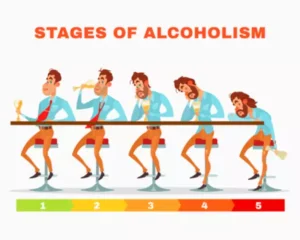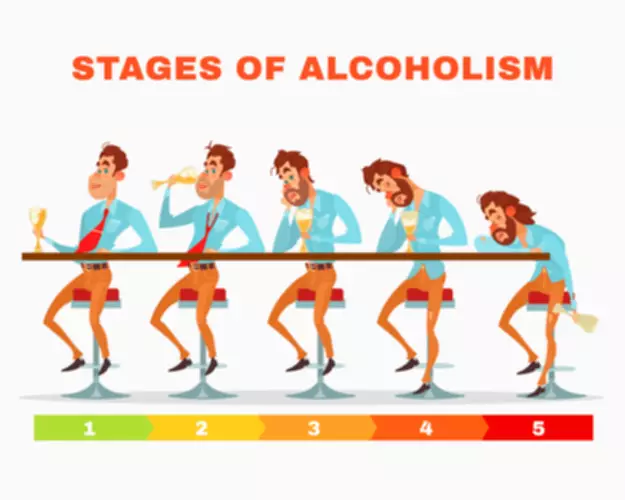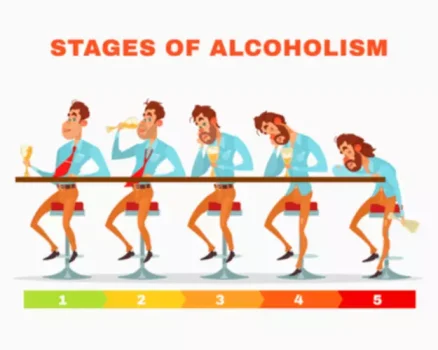
To make amends means to apologize for something you have done or for wronging someone in some way. It means mending, or (quite literally) fixing, the relationship. If you promised your father to help him mow the lawn on Sundays, but years have passed, and you’ve never once shown up, start now. If you promised your son or daughter to be there to see them off to college, clean yourself up and show up.
Professional Guidance

It’s recognizing that your past does not define you and that genuine change is possible. It’s about releasing the guilt and shame that may have been holding you back and embracing the prospect of a healthier future. Explore addiction counseling degree programs and kickstart a rewarding career in helping others achieve recovery. To manage anxiety related to making amends, practicing the DEAR MAN technique can be beneficial. This strategy encourages individuals to describe the situation, express their feelings about it, and ask what is needed.
How Is Recovery.com Different?
Accepting outcomes and working towards rebuilding relationships fosters closure and forward movement in recovery. For these reasons, we do not initiate the process of amends without significant input from our sponsors. It is their job to make sure we make amends in the right way and for the right reasons. This is a very sensitive process, and we need help to make sure we don’t hurt ourselves and others.
- When you make a real effort to change your past behaviors, you need to make the initial move in repairing broken relationships.
- This is a delicate process that requires forethought, reflection, and strong commitment.
- In the midst of your ninth step, you say to him “I’m so sorry that I stole that money from you and used it for drugs”.
- Identifying individuals harmed by past actions requires deep self-reflection.
Comprehensive Care
Once you get to know more people in your fellowship, you are free to ask someone else to sponsor you. There are thousands of success stories from around the world that are a testament to the fact that the Alcoholics Anonymous 12-Step approach is effective. However, interestingly, there is a notable lack of research and scientific evidence about the efficacy of the 12 Steps of Alcoholics Anonymous. Part of the reason is that 12 Step programs are based on anonymity.
Strategies for Combating Homelessness and Drug Addiction
Making your amends will help you get the sense of relief and hope you’re looking for. There isn’t one “right” way to make amends as part of your 12-step program, which might make you even more worried. These promises are often the most difficult to keep because addiction plays a decisive role in a person’s ability to live up to their promises. Their parent may feel more pain for their addicted child’s inability to get sober than the material items lost due to the thefts. The FHE Health team is committed to providing accurate information that adheres to the highest standards of writing. This is part of our ongoing commitment to ensure FHE Health is trusted as a leader in mental health and addiction care.
This can occur in person, by phone, email, or any other form of communication. As recovering addicts, we fear the loss of control we experienced in our darkest days. This step is alcoholism symptoms accompanied by the terrible realization that we have no control over the response of the people we have harmed. We will likely have wonderful experiences and very difficult ones. With the realization of how deeply we have hurt others through our addiction, we understand that amends must be made. In this step, we attempt to remove some of the debris created in the past through our actions.
Breaking Down Step Nine Of AA Alcoholics Anonymous
- The twelve step model has since transformed millions of lives, guiding people through personal recovery by emphasizing spiritual awakening, self-examination, and helping others.
- Having had a spiritual awakening as the result of these Steps, we tried to carry this message to alcoholics, and to practice these principles in all our affairs.
- At Recovered On Purpose, one of the ways we help others find freedom from addiction is by providing support and guidance for those on their 12 Step journey.
- Making amends brings profound healing, both personally and interpersonally.
- Fear of confronting past actions can lead to avoiding making amends altogether.
- Begin by choosing an appropriate time and place, and communicate your intentions honestly and succinctly.
Recovery.com combines independent research with expert guidance on addiction and mental health treatment. Our mission is to help everyone find the best path to recovery through the most comprehensive, helpful network of treatment providers worldwide. Adam Vibe Gunton is an American author, speaker and thought leader in addiction treatment and recovery. After overcoming homelessness and drug addiction, Adam found his life’s purpose in helping addicts find the same freedom he found. Support systems play a vital role in the process of https://ecosoberhouse.com/ doing the ninth step.

Once you enter into sobriety, there isn’t a set timeline for working Steps 8 and 9, so you might want to ask your sponsor and recovery support network for their insights about whether you’re ready. No doubt you will experience challenges and setbacks along the way. But by prioritizing your recovery on a daily basis and doing whatever that next right thing might be for you, you will keep moving forward in living a life of good purpose. For instance, someone who used to spend the holidays drunk might see showing up to every holiday sober as part of their living amends to their family. Similarly, a parent could do their best to prove to their kids that they’re sober and planning to stay this way.
Tips to Cope With Watching a Loved One Die

If you or a loved one is struggling with addiction, get in touch with us today and start your journey of recovery. A 12-Step program Washington is usually categorized as aftercare, meaning it is used to support recovering addicts after they have completed medical detox and residential addiction treatment. Some people with mild addiction may be able to enter a 12-step program directly. However, for living amends most people, especially those with moderate to severe addiction, medical detox and behavioral therapy at an outpatient or residential rehab in Washington is necessary. This approach offers a continuum of care with the highest chance of long-term success. A 12-Step program in Washington can be instituted as part of the ongoing care after the individual graduates from an inpatient drug rehab program.
